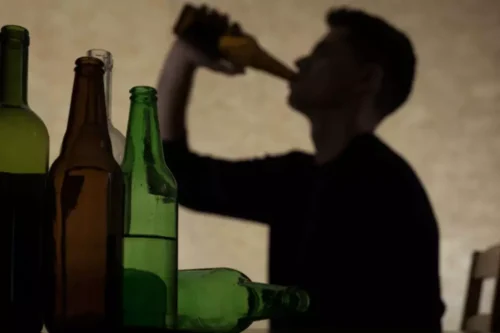
That way, you’re less likely to reach for a drink or head to a bar when those feelings get overwhelming. Emotional sobriety has also become a popular self-growth tool outside of just drinking habits for anyone who wants to get more in tune with what makes them tick. That self-control has to be a learned behavior for many drinkers looking to cut alcohol out of their lives. It’s about identifying triggers for alcohol use, like stress, sadness, or boredom, and coming up with coping skills or alternatives to drinking when faced with those triggers. At the most basic level, when you’re sober, you’re the opposite of drunk.

Avoid Old Habits and Toxic Relationships
A mental health professional can help you cope with some of the challenges you’ll face on your path to sobriety. Research shows that if you maintain these types of toxic relationships, your chances of relapsing are greater. To avoid relapse and remain sober, it’s important to develop healthy relationships. Spending time with your loved one, especially on activities you both enjoy, may help them feel more positive and optimistic about life in general. Hobbies can also help create a distraction from thoughts of drinking.
Reduce time with friends who drink
- The important thing is to find a recovery program that works for you and stick with it.
- The sober curious movement, however, suggests there’s plenty of room for alternative approaches.
- I don’t know if you’ve heard of the term hanxiety, but it’s kind of this play on hangover and anxiety.
- Dating a sober guy or a person in recovery rather than a person who enjoys getting drunk is a bit complex.
Plus, if you’ve done things while drinking that harmed you or people you love, you may also carry some pain and have plenty of sharp words for yourself. Talking to loved ones about what you’re experiencing and sharing as much as you feel comfortable with can help them understand your distress. This can also help you reconnect and make it easier for them to offer empathy and support when your feelings and emotions trigger thoughts of drinking. It’s not always easy https://ecosoberhouse.com/ to open up about alcohol use and recovery, especially to people who don’t have any experience with it, but it’s a crucial part of the process. These behaviors and emotional concerns can strain your relationships and interactions with others, especially if alcohol use has already had a negative impact on your relationships. The characteristics of this phenomenon may share similarities with the feelings and behaviors you might experience while still drinking.
- If a person is diagnosed with a severe health problem, then they have no option but to quit alcohol.
- People recovering from alcohol misuse or addiction often experience difficult, painful emotions.
- She has extensive experience working alongside clinicians and providers to create physical and mental well-being content that’s useful, informative and clinically effective.
- Dr Elena Touroni – consultant psychologist and co-founder of The Chelsea Psychology Clinic – encourages self-reflection.
- That said, your liver has to work hard to process and filter alcohol, no matter the quantity.
- And for some people, alcohol was one of those changes that they wanted to make, both for physical wellbeing and even emotional wellbeing.
- It waited patiently for my recognition for 12 years until that morning when my consciousness and the truth collided undeniably.
common thinking traps and how to avoid them, according to a Yale psychologist
Your doctor can supervise your detox, recommend treatment options, and refer you to local resources in your area that can help. They can also prescribe medications that can help with withdrawal, cravings, and abstinence. The next step sober alcohol meaning is to think about what being sober curious might mean in your life. For example, it might mean giving up alcohol for a period of time, such as participating in Dry January, or it might involve gradually decreasing your alcohol use.

Identify Your Personal Triggers
That means drinking is limited to moderate, responsible amounts as defined by your personal goals or the more official Moderation Managementguidelines. Drinking in moderation does come with some benefits, especially if you’re reaching for resveratrol-rich red wine, but it will always be a better option to drink less or not at all. Those in recovery who haven’t addressed those root issues are often described as “dry drunk,†a term coined by AA. By focusing on these three pillars, individuals can establish a state of sobriety where they are not only drug-free but also engaged in personal growth and healthy coping mechanisms.

Withdrawal Symptoms
- One reason sober bars are popping up across the country is that they remove the pressures and dangers of alcohol while providing a space for socialization and community, which all humans crave.
- Who knows, you may even find yourself replacing your liquor store runs with a trip to the dispensary, and before you know it, you’ll be California Sober.
- And the market is changing to meet this new demand, according to Google Trends data.
- Some women, fed up with their husbands drinking away the household budget, also campaigned for abstinence by the middle of the century.
- Valley Spring Recovery Center offers comprehensive addiction and mental health treatment services.
The movement has encouraged more sober-focused events such as yoga retreats, meditation sessions, book clubs, online communities, and non-alcoholic dinner parties. Often referred to as “generation sober,†the millennial generation has embraced sober curious culture and has actually made sobriety more culturally acceptable. Though some individuals have been sober curious for decades, the term was created by Warrington. Her event series called Club SÖDA NYC stands for Sober or Debating Abstinence and features panels, writing workshops, and sober retreats. Sober curious is a term that means questioning your relationship with alcohol and thinking about trying sobriety, even if you are not ready to commit to it. However, most people do not think about the impact of alcohol use on their financial well-being.
- If you turn sober, you’ll be saving a big amount of money to spend elsewhere.
- People in recovery from a substance use disorder frequently have problems meeting work-related responsibilities, maintaining employment, and managing money.
- It refers to traits and behaviors often seen with alcohol use that persist into recovery.
- If alcohol affects your ability to manage your emotions, sobriety can improve your mood and help you communicate more productively.
- It really relates more to self-control, watchfulness, and dispassion.
‘Sober Curious’: What Does It Mean to Explore Life Without Alcohol?
Recovery from drug addiction is not just a one-time event but a continuous process. It is the next step in the cycle of addiction that follows treatment for active drug addiction. You don’t need to avoid gatherings with alcohol entirely, but it does help to have a plan for how you’ll handle social settings where others are drinking. Perhaps you don’t miss alcohol much, beyond a brief twinge of nostalgia for the pleasant buzz that comes with a glass of wine. If you don’t find it difficult to go without, you likely have a healthy relationship with alcohol. If you want to join the official fundraising challenge to raise money for cancer support and treatment, you have the option to commit to 14, 21, or 31 days without drinking.



